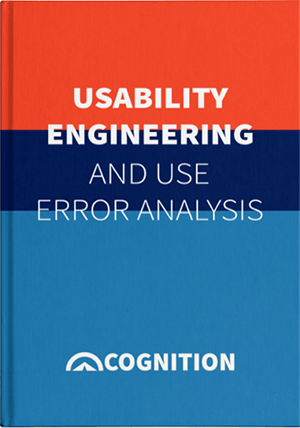Cognition Blog
Our blog navigates product development and compliance for the life science industry. Our solutions save time and money, delivering products with less risk.
At Cognition, our goal is to provide medical device and pharmaceutical companies with collaborative solutions to the compliance problems they face every day, allowing the customer to focus on their products rather than the system used to create them. We know we are successful when our customers have seamlessly integrated a quality system, making day-to-day compliance effortless and freeing up resources to focus on product safety and efficacy.

By:
Cognition Corporation
March 7th, 2019
Managing the risks of your life science product can be a complex task. Some risks must be assumed, while others need to be controlled, transferred, monitored, or designed out of the product entirely. Implementing risk controls to reduce and manage the impact of associated risks, as well as their probability of occurrence, is the most common approach manufacturers leverage in their design and development efforts.

By:
Cognition Corporation
March 5th, 2019
For many life science organizations, long-term growth is a primary goal. Whether focused on greater stability, increased revenues, or more diverse product portfolios, the need for expansion can drive how a company thinks and operates. However, pushing to expand your business is not without its difficulties.

Subscribe to the blog and get this guide for free

By:
Cognition Corporation
February 21st, 2019
As your life science organization advances and begins to expand its teams and portfolios, opportunities for productive, long-term growth present themselves. However, these opportunities aren’t always realized to their fullest extent or are missed out on entirely. If you’re struggling to grow your life science company, what could be slowing you down? To answer this question, there are four key areas you should take care of: process maturity, people, planning, and product portfolio management.

By:
Cognition Corporation
February 19th, 2019
The medical device industry is in a state of immense change. Powered by technology, there are now incredible opportunities to improve patient outcomes, offer new and dynamic treatments, and help your organization thrive as a result. However, this technological change brings with it a number of new and evolving risk factors specific to our modern landscape.

By:
Cognition Corporation
February 14th, 2019
Life science product development can sometimes be a niche enterprise, and for good reason—certain populations and conditions require specific solutions and treatments. Providing these can be a boon to both patient outcomes and your organization’s bottom line, as well as progressing that particular field of treatment.

By:
Cognition Corporation
February 12th, 2019
We have entered the age of big data—the volume of data gathered in healthcare alone is becoming larger and more complex as the days go by. This wealth of information has sparked the rise of open access databases for public and commercial use around the globe. All this freely available data can be a boon to innovation in life sciences. However, the risks these databases present, and the approaches regulatory agencies take toward those risks, are important considerations for your organization.

By:
Cognition Corporation
February 7th, 2019
Labeling is an important part of FDA’s quality system regulation for medical devices. So important, in fact, that labeling regulations are captured in several distinct parts of 21 CFR Subchapter H – Medical Devices. These sections cover how devices are tracked, the unique device identifiers (UDIs) and universal product codes (UPCs) necessary for that tracking, and specific labeling requirements.

By:
Cognition Corporation
February 5th, 2019
First codified in the Food and Drug Administration Modernization Act of 1997, least burdensome provisions have guided all of FDA’s regulatory work ever since. The provisions impact everything from the development of new guidance documents to adjusting and improving upon existing approval pathways, and so on. Particularly with the agency’s bolstered commitment to addressing digital health products in the coming years, the least burdensome approach has never been so important. But how does FDA actually define “least burdensome” exactly, and how do they enact it?

By:
Cognition Corporation
January 31st, 2019
Time to market is only part of the equation when it comes to being competitive in life science industries. The other major factor is differentiation: what does your product do that is inventive and improves outcomes for users and patients beyond the capacities of similar, legally marketed products? To build that value into your product, innovation is key.

info@cognition.us
1 (781) 271-9300
24 Hartwell Avenue,
Lexington, Massachusetts 02421
©2026 Cognition Corporation | Privacy Policy